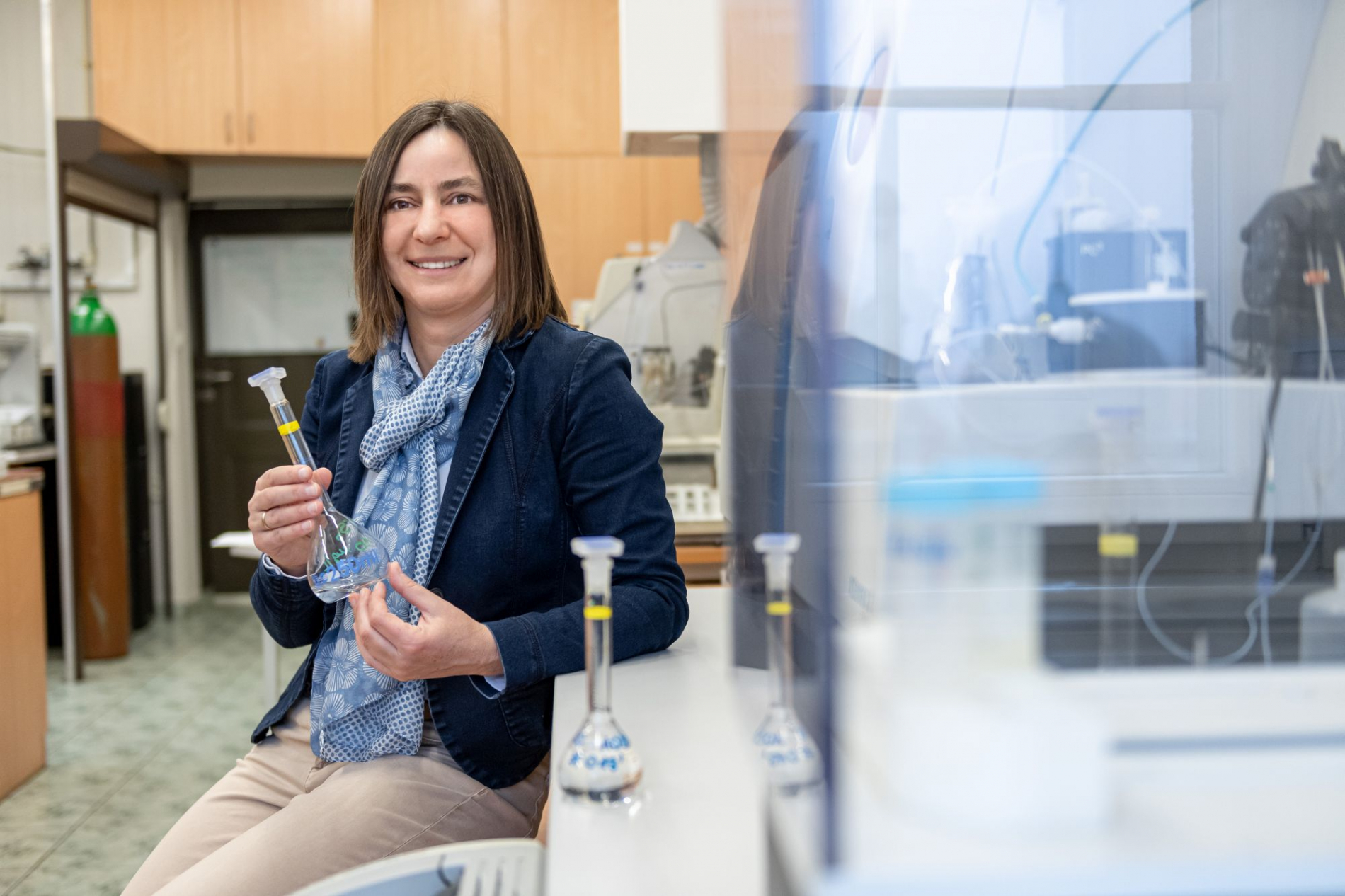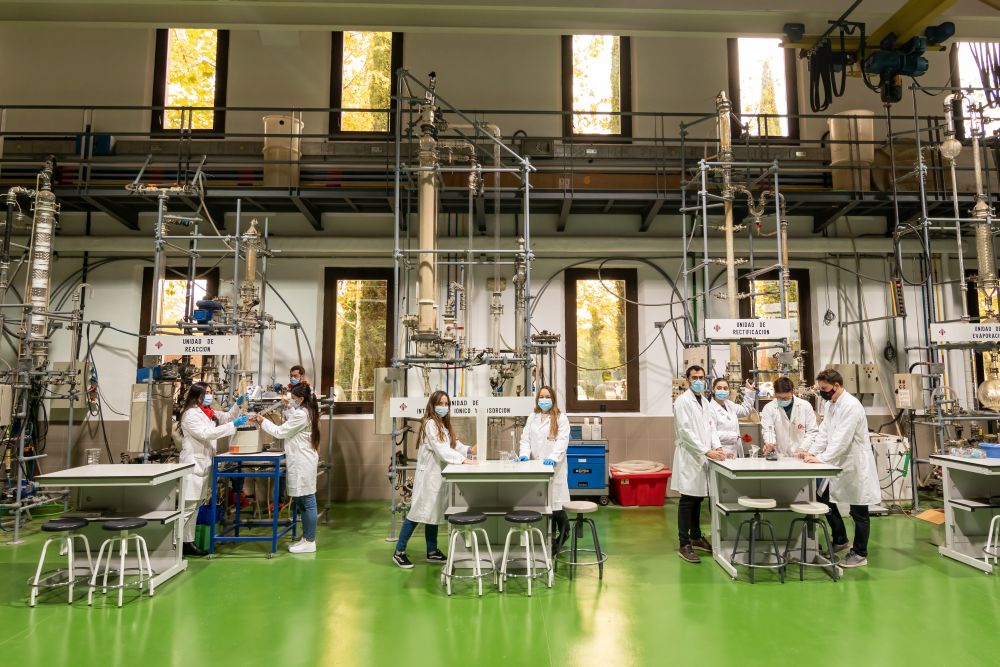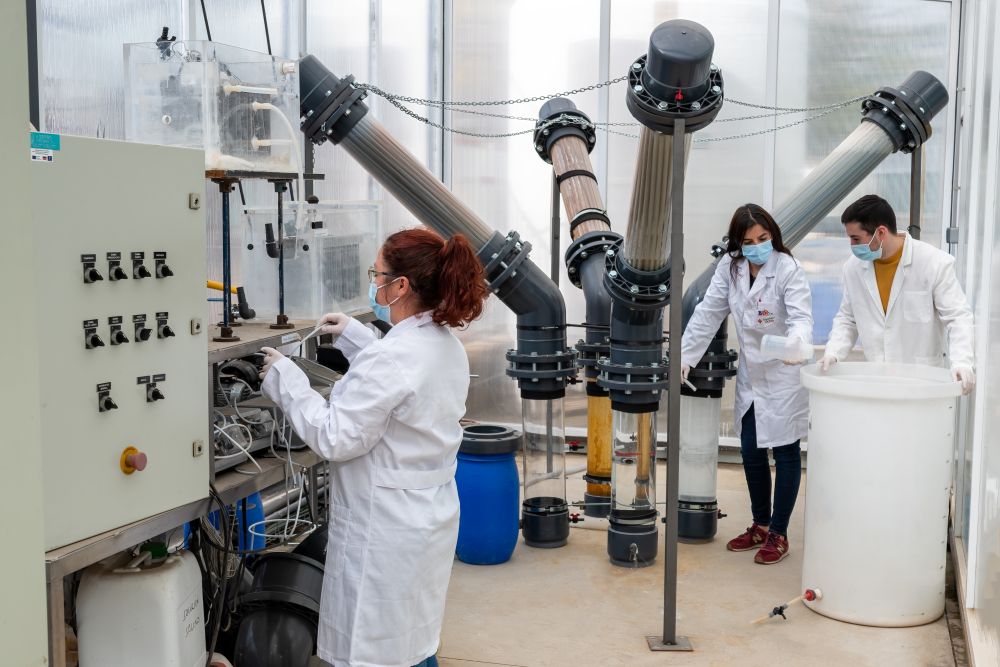YOUR BROWSER IS OUT-OF-DATE.
We have detected that you are using an outdated browser. Our service may not work properly for you. We recommend upgrading or switching to another browser.
Date: 13.01.2022 Category: general news, international cooperation, science/research/innovation, studies
Wrocław University of Science and Technology is the first university in Poland to coordinate the Erasmus Mundus Joint Master Degree Programme. Together with universities from Spain and Finland, it will train specialists in sustainable biomass processing and bioproduct engineering.
 The Sustainable Biomass and Bioproducts Engineering project is a response to the growing demand for chemical engineering professionals. The graduates will have the knowledge and skills to design and develop engineering solutions for sustainable biomass management and the obtainment of "green" products – biofuels, bioenergy, biodegradable plastics, building materials, paper, and chemicals.
The Sustainable Biomass and Bioproducts Engineering project is a response to the growing demand for chemical engineering professionals. The graduates will have the knowledge and skills to design and develop engineering solutions for sustainable biomass management and the obtainment of "green" products – biofuels, bioenergy, biodegradable plastics, building materials, paper, and chemicals.
– This is the most prestigious 2-year master's degree programme in English, where each student receives a scholarship of 1,400 euros per month. Candidates are selected through a competition, so we hope to attract the best of them – says the coordinator of the SBBE programme, Jolanta Warchoł, PhD, Dsc, Eng, University Professor from the Wrocław Tech’s Faculty of Chemistry.
The new degree programme will be implemented by a consortium which, in addition to Wrocław University of Science and Technology, includes: the University of Castilla-La Mancha and Lappeenranta-Lahti University of Technology. This means that three universities are responsible for developing the four-semester curriculum and the training itself, and the graduate will receive a diploma from the three tertiary institutes.

– The programme’s innovative approach lies in the gradual increase in technological advancement at subsequent stages of the training – explains Prof. Jolanta Warchoł.

During the first semester, carried out at Wrocław Tech, students are introduced to the synthesis of biomaterials and techniques for analysing the resulting product. In the second semester, conducted in Spain, they gain engineering knowledge in the areas of process design, simulation, and optimisation. As far as Finland goes, it is where they will acquire practical knowledge about green biomass conversion technologies and bioproduct utilisation strategies (by developing technological scale projects and facility prototypes).
The programme curriculum also includes internships in industrial enterprises (in companies operating in Poland, Finland, and Spain) and placements at universities abroad – in India, Brazil, Colombia, the UK, the Netherlands, the Czech Republic, Portugal, and Romania. There will also be specialist lectures delivered by representatives of international institutions involved in financing environmental projects.
 Getting to know the culture and language
Getting to know the culture and language– Learning about the culture and history of the partner countries is an intrinsic part of the educational programme, which means that the students will learn Finnish, Spanish, and Polish, visit historical heritage sites and environmental protection areas, and take part in cooking workshops – adds Prof. Warchoł.
She also stresses that the partner universities are leading scientific centres concerned with advanced chemical process engineering. The SBBE project is the result of many years of cooperation between universities under the Erasmus programme and carrying out joint research projects.
– The programme ends with a master's thesis developed and defended at a research centre of the student's choice. We are keen for the research results to be published in scientific journals, as our graduates are potential candidates for the best doctoral programme of the European Training Network – Marie Skłodowska-Curie – says the programme coordinator.
The enrolment procedure for the Sustainable Biomass and Bioproducts Engineering programme starts as soon as this March. There will be 20 places for students, mainly from non-EU countries (75 per cent of the participants).
– The admission criteria and all necessary information about the curriculum will be published on the programme website, which is already under preparation – explains Prof. Jolanta Warchoł.
The project will run for 5 years with funding of 4.3 million EUR.
*** University Professor Jolanta Warchoł, PhD, Dsc, Eng from the Department of Advanced Material Technologies at Wrocław Tech’s Faculty of Chemistry is a specialist in chemical and environmental engineering, water treatment technologies, and synthesis and modification of sorbent materials.
She graduated from Rzeszów University of Technology and defended her doctoral thesis at Wrocław University of Science and Technology, Faculty of Environmental Engineering, for which she received an individual ministerial award. She has carried out research projects as part of the Fulbright Program in the USA and scholarships from the Marie Curie-Skłodowska Institute in Finland, the Weizmann Institute in Israel, and research centres in Spain and Greece.
Our site uses cookies. By continuing to browse the site you agree to our use of cookies in accordance with current browser settings. You can change at any time.